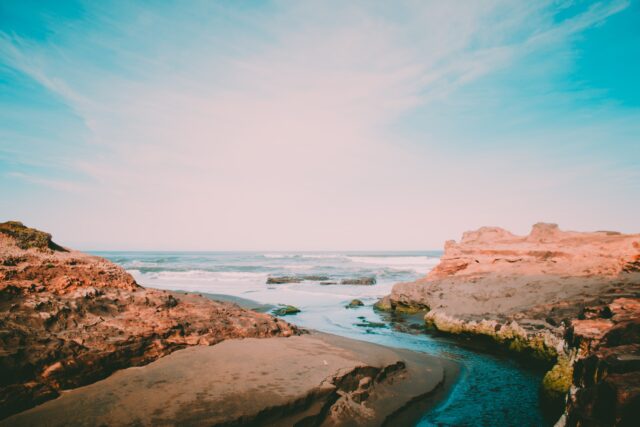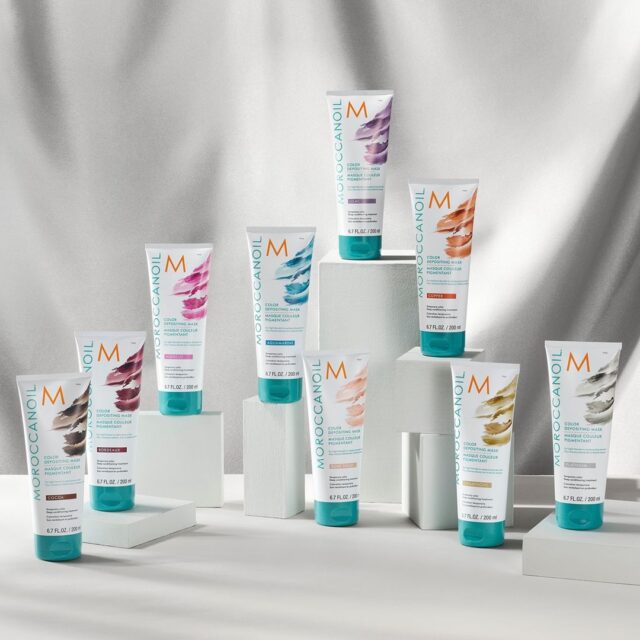We talked to Moroccanoil Co-founder Carmen Tal to find out more about Moroccanoil’s long-term partnership with Oceana and other ongoing sustainability efforts, including the changes she’s making in her own life.
Moroccanoil has been taking significant steps in recent years to prioritize sustainability. What inspired this journey?
I would say it started the way a lot of things start for us, which just by paying attention and asking questions. Just in your daily life, you inevitably come face-to-face with these problems that we’re experiencing as a society—pollution, waste, the impact humans have on the natural world. Once you realize there’s a problem and you’re part of it, you start asking questions. Am I making responsible choices? What more could I be doing to help?
Once I started doing the research, I realized there was a lot we could do to help. For me, that’s when the problem became an opportunity. An opportunity to become more sustainable as a brand and as individuals, but also an opportunity to use our platform to help others become more sustainable. We’re grateful that we’re in a position to do all of those things.
Of course, none of the changes happened overnight. It really is a journey. But doing nothing is out of the question for us—we believe that we all have a responsibility to protect the environment. So instead, we’re focusing on the areas where we can have the biggest impact: improving our packaging, responsible manufacturing, and supporting our communities through partnerships with organizations like Oceana.
The Moroccanoil x Oceana partnership is an exciting next step. Why is the ocean an important focus for you?
It’s partly emotional and partly just logical. Over 70% of the Earth’s surface is covered in water, and it’s this incredibly vital life source that supports so much of the planet’s biodiversity. I also grew up in Chile, which is a country where the ocean can be seen from almost literally every point. I learned from an early age to admire its beauty and ability to sustain life, but also to respect it. And if you respect something, you’re going to work hard to protect it.

What makes Oceana the right organization to partner with for this initiative?
We were drawn to Oceana because they’re focused on policy and not just cleanup. Not to say that cleaning up the ocean isn’t important! But in terms of creating lasting change that can protect this incredible resource for future generations, we’re going to need the kind of science-based policies that Oceana has a proven track record in helping to implement. Policy changes also tend to lead to more measurable results, and we’ve learned from our own sustainability journey that the best way to make sure you’re continually improving is to carefully track your progress.
Which of the Moroccanoil sustainability efforts are you most excited about?
Probably all of the packaging changes, because as a beauty brand we’re able to make such a significant impact in that area. It’s also really interesting just to keep trying new things and seeing what works. For instance, when we launched Color Depositing Masks a few years ago, that was the first time we created tubes using post-consumer recycled materials. We were really happy with the results, including that using just 50% PCR in the packaging reduced the carbon footprint by 40%. Once we knew that, we were able to start applying the same changes to other products. We launched Blonde Perfecting Purple Shampoo the next year using PCR materials, and we’re working on making similar updates to more of our products.

What sustainable changes have you made in your own life?
I’m focused on everyday actions like recycling and composting. I think if more people knew how easy it is to compost—even living in an apartment in urban areas—they would probably give it a try. I’m continually amazed by how little trash my family produces now that we’re composting what we can.
I’ve also started paying more attention to my consumption, in a number of areas. For one thing, I buy less and try to repair things before replacing them. I’m also trying to eliminate food waste and always working on reducing my consumption of resources like water and electricity. Those little things like turning lights off and taking shorter showers might not feel like much, but if we all commit to the small changes, they can really add up.
I also do what I’m doing right now, which is talk about sustainability! I feel like I talk about it non-stop. My hope is that when I share what I’ve learned, the people I talk to pass that knowledge on to people in their own lives, and it leads to a larger impact than one person can have alone. I also learn a tremendous about just from having these conversations.
What would you say to someone—a person or a brand—who is overwhelmed by the steps it takes to become more sustainable?
I would say first that it’s okay to be overwhelmed. Any change is difficult. We become comfortable with the way we live our lives, but we live in very difficult time—this is a moment when the changes we’re making will have a big impact on future generations. As inconvenient as those changes may seem today, a few years along we’ll see the benefits, and I think it will feel empowering to know that we helped contribute.
There’s also a lot of pressure to be all-in, as individuals and as brands, when it comes to sustainability. And of course that’s the ideal. But I want people to know that they can take it one step at a time. Just make sure you’re constantly learning, that you’re staying aware of the problem, and that you make those small grains of contribution. Just because we can’t do everything doesn’t mean we can’t do something, and if everyone does something it’s going to make a big difference in the kind of world we’re leaving for our children and grandchildren.

